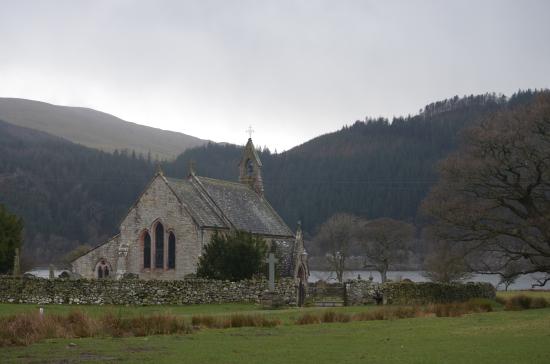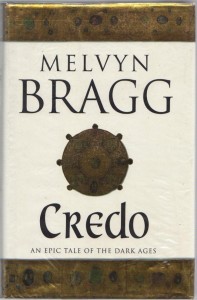
This is the only novel I have read in over twelve months—a very sad state of affairs! I began it last year and finished it a couple of weeks ago. I have managed to listen to a number of novels however, so it hasn’t been a complete withdrawal from the world of fiction.
Melvyn Bragg was labelled by The Times as a “novelist, television presenter, and arts doyen.” He has led a quite public life in the UK and was made a peer, Lord Bragg, in the 1990s. This is the first novel I have read by Bragg, though I have another on the shelf. The story-telling in this novel is quite good and the style, while neither riveting nor overly-memorable, does its duty of maintaining sufficient interest to keep the narrative moving.
Credo is a large work, over 750 pages, telling the story of Bega, a young Irish princess who becomes a nun at Whitby Abbey in the mid-seventh century, and establishes her own convent shortly afterwards. Based faintly on historical events, characters and writings, Bragg has imagined how things might have been, drawing especially on the work of Bede the Venerable, who features in the book as a child. The story follows the life and love, the faith and service, prayer and miracles, struggles and triumphs of Bega in a world dominated by political ambitions, warfare, and ecclesiastical factions (the Roman church and the Celts) striving for their own versions of Christianity.
The portrayal of the faith of these early British Christians was interesting. Bragg presents them as dedicated and devout, and in their pre-scientific culture, credulous, even superstitious. Their asceticism and their focus on prayer is emphasised while the presence and influence of the Scriptures is peripheral. Bega is shown as specially marked out and gifted by God with special grace and powers, though her exceptional humility keeps her from any self-aggrandisement.
The relationship between Bega the Christian leader and Reggiani a local pagan wise woman and healer is explored, with Bega often—from a modern perspective at least—appearing backward and ill-informed. Yet her faith and faithful prayer triumphs in the midst of much adversity, suffering, and self-abasement.
 The historical record of Bega is slight. In an afterword Bragg notes that she “hovers between the historical and the mythic,” although traces of her life still exist in place names, and a tiny lakeside church by Bassenthwaite in the Lakes District named St Bega’s (752, 756f.). She is said to have inspired miracles until about 1300.
The historical record of Bega is slight. In an afterword Bragg notes that she “hovers between the historical and the mythic,” although traces of her life still exist in place names, and a tiny lakeside church by Bassenthwaite in the Lakes District named St Bega’s (752, 756f.). She is said to have inspired miracles until about 1300.
I had never heard of her, although I have known of and visited the abbey at Whitby, know the story of Hild, and am aware of the important synod held there in the mid-seventh century. Bragg brings these events and their personalities to vivid life, though to what extent the portrayal is an accurate reflection of the reality, I am not sure.
Reading this book has kindled a desire to read—sometime—Bede’s history of the English church, and perhaps other works of history to learn more of these faithful Celtic Christians, and the extraordinary devotion and service they appear to have shown. Thus I have found the book worth reading, and not simply for a fascinating and enjoyable story.
I read this book a number of years ago and was impressed with it’s width and detail. I passed it on to friends and, as often happens when lending out books, it never returned.
Recently, I downloaded Credo into my Kindle, only to find a completely different story by Melvyn about Bega but, most of the time living at Whitby, in the Abbey where she was at the centre of the challenge between the Celtic Christians and the Roman order.
As a member of the Reformed English tradition, it was interesting to follow the machinations of Wifrid to overcome the Cells, not always in a responsible fashion.
This conflict occurs also, in the earlier version, but not so extensively.
Both versions have a common base in the quality and depth of writing and I can recommend both as a picture of the development of the faith that has it’s repercussions to the present dah
Thanks, Graham, for stopping by! I had no idea that there was a revised version of the story – there you go! Perhaps because I read it over so long a period, with long breaks between readings, I was not as gripped by it as I might otherwise have been. But I did enjoy the portrayal of the faith and devotion of these early Christians in Britain. Inspiring stuff, in its own way.